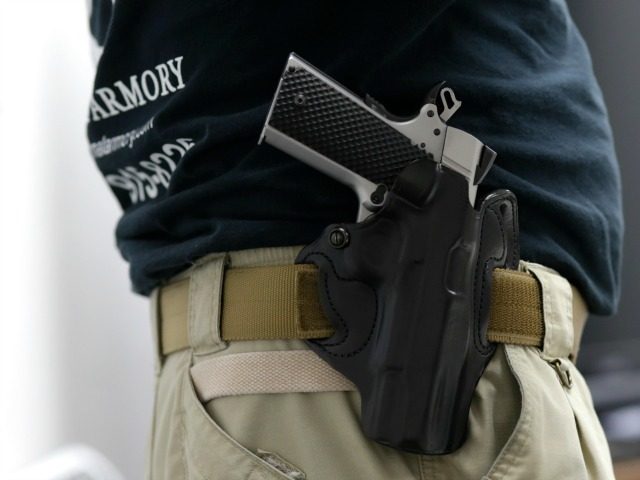National reciprocity for concealed carry is really about one thing: bearing the arms we keep.
We have the right to keep arms, per our Creator, and we have a right to bear them, per our Creator. Thomas Jefferson and James Madison made this clear.
Jefferson wrote, “We hold these truths to be self-evident, that all men are created equal, that they are endowed by their Creator with certain unalienable Rights, that among these are Life, Liberty and the pursuit of Happiness.”
The gist of his declaration was to remind King George III that colonists had certain rights that were theirs by birth and could not be taken or even diminished by government. This was not to say government did not wrongly shackle the exercise of such rights. In fact, it was such shackling that led the colonists to break free and declare their independence from tyranny.
After the American Revolution, “Life, Liberty, and the pursuit of Happiness” were fleshed out in the Bill of Rights, where an enumeration of specific protections for specific rights was set forth. This included the right to freedom of speech and religion (First Amendment), the right to be secure in one’s property (Third and Fourth Amendments), the right to be secure in one’s person (Fourth Amendment), the right to keep and bear arms (Second Amendment), and many other rights. In fact, the enumeration of God-given rights included a protection on rights not enumerated, yet possessed by the people.
It is the Ninth Amendment which says, “The enumeration in the Constitution, of certain rights, shall not be construed to deny or disparage others retained by the people.”
None of the amendments protecting Americans’ God-given rights are worded in a way that would indicate the rights are only viable in citizens’ hometowns or in their home states. For example, the First Amendment does not say, “Congress shall make no law abridging freedom of speech in your home state.” The Fourth Amendment does not say, “The right of the people to be secure in their persons, houses, papers, and effects, against unreasonable searches and seizures, shall not be violated unless the people are outside the city limits of their hometowns.”
It appears silly to think God-given rights to free speech and/or privacy are limited to a physical location. Yet this is what the left says about the rights protected by the Second Amendment; they claim that states–acting like various fiefdoms–can morally and legitimately shackle the exercise of God-given rights for visitors passing through their states. In so doing, leftists conduct themselves as if the right to bear arms is only protected from infringement in one’s hometown or home state. Once a gun owner begins to travel, he begins to lose rights.
When James Madison fashioned the Second Amendment as part of the Bill of Rights, which would be added to the Constitution, is it plausible that he thought, “This right is different from all other God-given rights insomuch as it is only valid when the citizen exercising it is at home”?
Rather, Montpelier reports that Madison handed the draft for what would become the Second Amendment to a congressional committee, and the wording, as ratified, said, “A well regulated militia, being necessary to the security of a free state, the right of the people to keep and bear arms, shall not be infringed.”
Our right is not simply to keep arms but also to bear the arms we keep. This lies at the heart of national reciprocity.
AWR Hawkins is the Second Amendment columnist for Breitbart News and host of Bullets with AWR Hawkins, a Breitbart News podcast. He is also the political analyst for Armed American Radio. Follow him on Twitter: @AWRHawkins. Reach him directly at awrhawkins@breitbart.com.

COMMENTS
Please let us know if you're having issues with commenting.